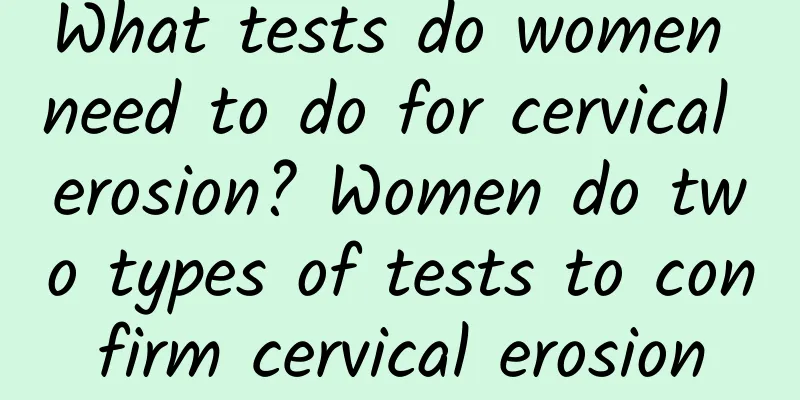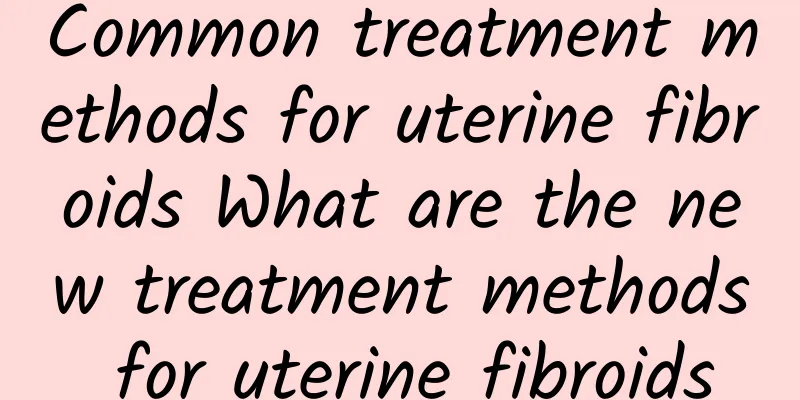What medicine should I take for a 2-centimeter uterine fibroid? Can a 2-centimeter uterine fibroid be eliminated by taking medicine?

|
What medicine should I take for a 2 cm uterine fibroid? Uterine fibroids are a common benign tumor in the female reproductive system, which usually grows inside the uterine wall. When they find out that they have uterine fibroids, many people will ask: "What medicine should I take for a 2 cm uterine fibroid?" Although some medicines can help relieve the symptoms of uterine fibroids, they cannot directly eliminate it. There are several options for direct medication to treat uterine fibroids. Medication can help relieve symptoms and control tumor growth. However, these medications often only have a temporary effect and cannot eliminate the tumor. Unless the tumor is severe and requires surgery, medications can only help slow it down. Common drug treatment options include: 1. Progesterone drugs: Progesterone and progesterone analogs can help inhibit the effects of estrogen, thereby slowing the growth of uterine fibroids. This drug is usually used orally or by injection, but it can cause side effects such as irregular menstruation and dry mouth. 2. Estrogen-controlling drugs: Some drugs can help control the estrogen level in the body, thereby slowing the growth of uterine fibroids. These drugs may cause menopausal symptoms such as hot flashes and insomnia. 3. Treatment with Chinese medicine: Some Chinese medicines can also be used to treat uterine fibroids, such as Angelica sinensis, Chuanxiong, etc. The use of Chinese medicine needs to be carried out under the guidance of a doctor, and the dosage and method of use need to be carefully controlled. Although medications can help slow the growth of uterine fibroids and relieve symptoms, surgery is often necessary to eliminate the tumor. This can be done through myomectomy, uterine fibroid embolization, or total hysterectomy, depending on factors such as the size and location of the tumor and the patient's age. In short, when the uterine fibroids are 2 cm in size, drugs can help slow down the growth of the tumor and relieve related symptoms, but they cannot directly eliminate the tumor. Therefore, if you have uterine fibroids, you should see a doctor as soon as possible and follow the doctor's advice to choose the appropriate treatment method. At the same time, you should also pay attention to maintaining good living habits, maintaining a healthy weight and having regular physical examinations to reduce the risk of occurrence and recurrence of uterine fibroids. |
<<: What are the symptoms of uterine fibroids?
>>: What are the early symptoms of uterine fibroids? What does uterine fibroids feel like?
Recommend
How to regulate irregular menstruation
Most patients who often suffer from irregular men...
How to treat Bartholin's gland cyst
Bartholin's gland cyst is usually caused by b...
How big is a physiological ovarian cyst?
How big is a physiological ovarian cyst? Physiolo...
Can I soak my feet during my period? It can drive away the cold
Menstruation is a special period for women. Most ...
Where is the best place to treat uterine effusion?
People have gradually learned about sexually tran...
What are the test indicators for adenomyosis?
What are the examination indicators for adenomyos...
Strengthen these 5 muscles and you won’t age! 2 Dynamic stretching exercises are effective
Do you use the muscles in your posterior body in ...
The surface is super strong! 6 exercises to build muscle and lose fat without any body weight! The champion coach reveals a recipe for lazy people who are sure to lose weight: fried chicken breast with eggs
The purpose of wearing cool clothes in summer is ...
What are the symptoms of recurrence of cervical erosion? 6 symptoms indicate that cervical erosion has recurred
In life, although cervical erosion is familiar to...
What causes vaginitis?
Among gynecological diseases, vaginitis is a majo...
What are the symptoms of cervicitis in women? How does traditional Chinese medicine treat cervicitis?
Many women do not take the correct treatment meas...
Is pelvic inflammatory disease curable?
Is the cure rate of pelvic inflammatory disease h...
Eat like this to build immunity against epidemics! Nutritionists share 3 tips: enough protein, less refined sugar
Epidemic prevention depends on internal and exter...
Several common drug treatments for menopause
When women are over 45 years old, they will exper...
Postmenopausal bleeding with abnormal vaginal discharge
Postmenopausal bleeding with abnormal vaginal dis...









